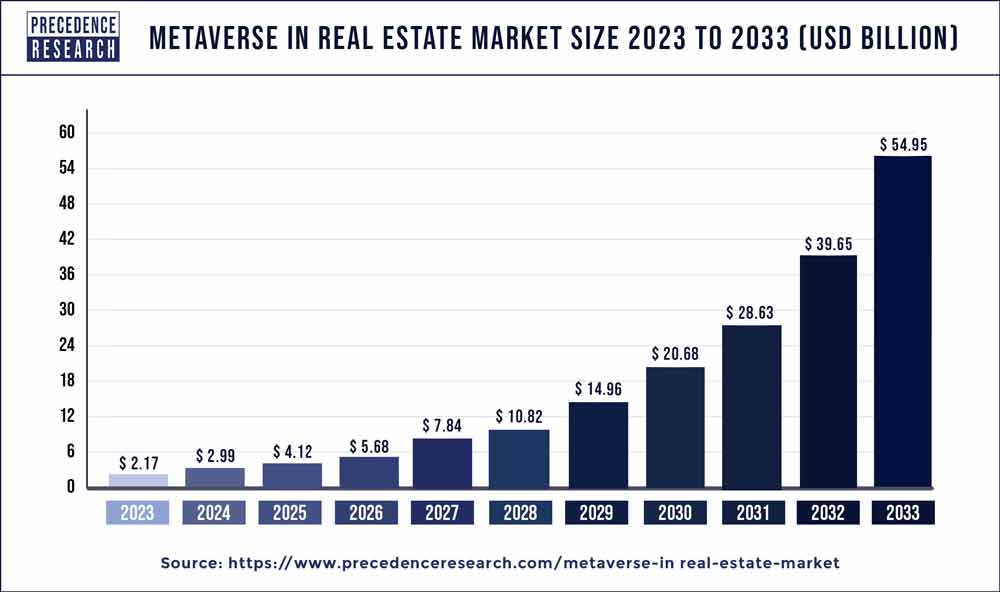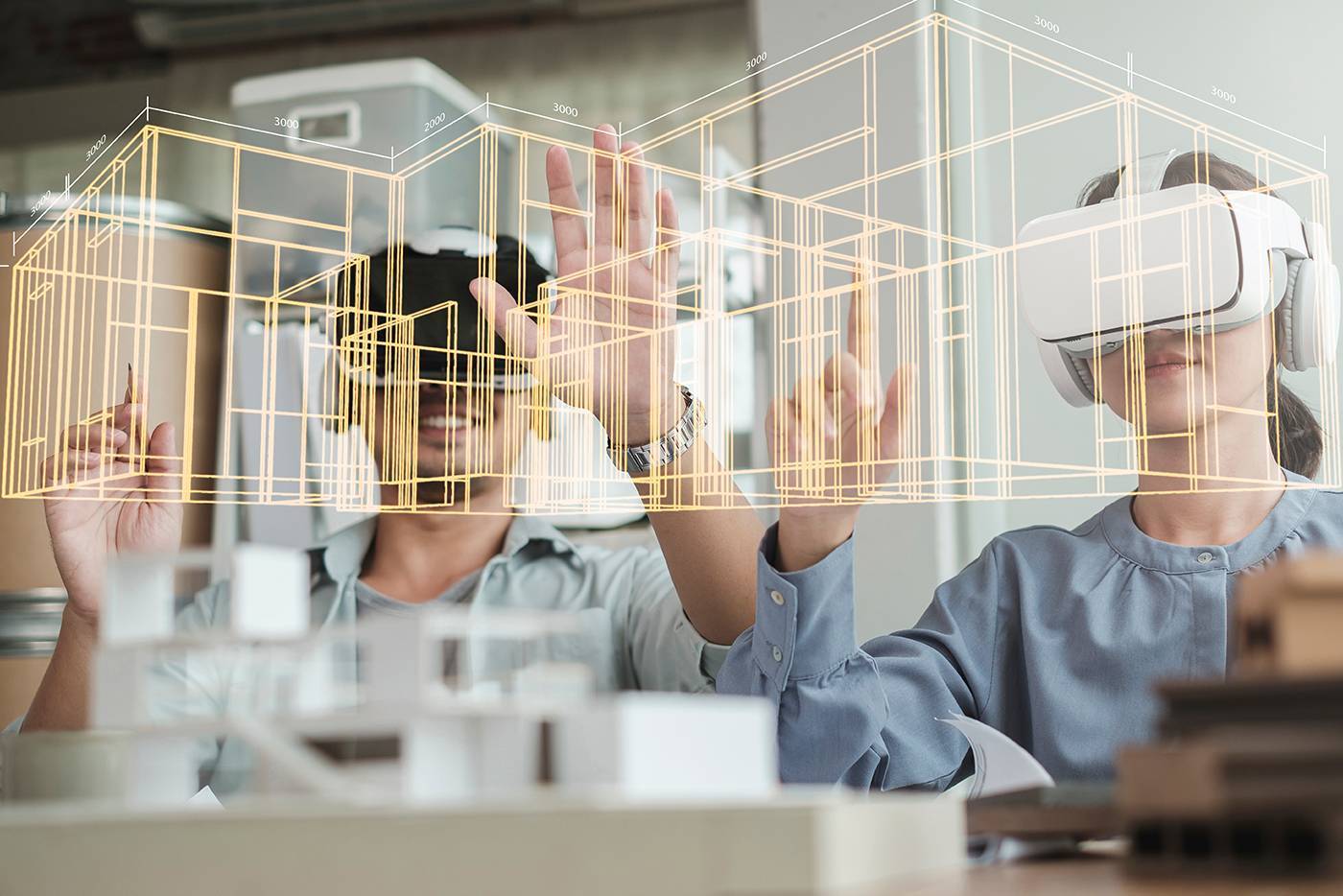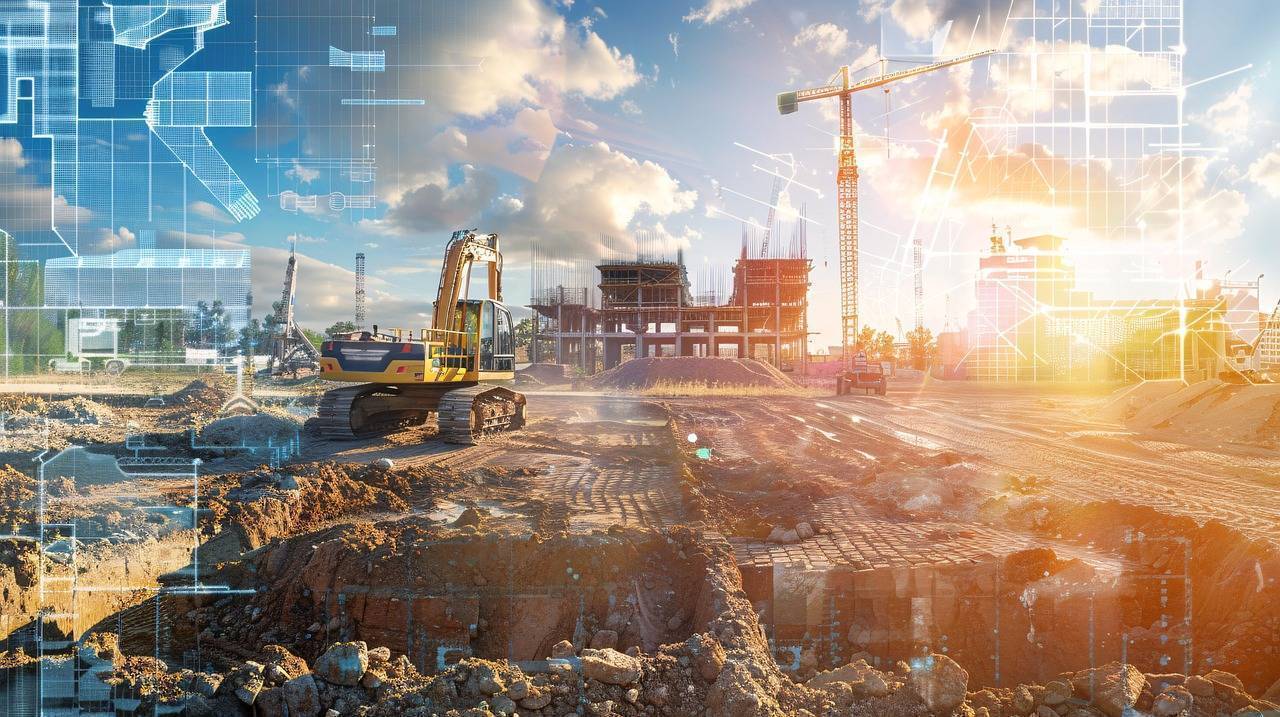The convergence of metaverse technology and the real estate sector marks a significant turning point in the industry's evolution. Metaverse, a virtual realm existing within digital space, has emerged as a disruptive force across multiple sectors, and its integration with real estate holds immense promise for reshaping traditional practices and enhancing user experiences.
What is Metaverse?
The metaverse represents a virtual realm or universe comprised of interconnected digital spaces, where users can interact with each other and digital objects in real-time. Unlike traditional virtual environments, the metaverse is not confined to a single platform or application but encompasses a vast network of virtual worlds, games, social spaces, and immersive experiences. Users navigate the metaverse using avatars, digital representations of themselves, and can engage in a wide range of activities, from socializing and gaming to commerce and entertainment.
Metaverse and Real Estate:
The amalgamation of metaverse technology with real estate introduces a paradigm shift in the property buying process. Traditionally, prospective buyers relied on physical property visits to assess various aspects of a potential investment. However, with metaverse technology, buyers can now embark on immersive virtual tours of properties, providing them with a lifelike experience from the comfort of their homes. These virtual tours offer a comprehensive view of the property layout, enabling buyers to explore every nook and cranny without setting foot on-site. Moreover, metaverse platforms allow buyers to visualize under-construction projects in real-time, offering valuable insights into the progress and quality of construction.
Advantages of Metaverse in Real Estate
The impact of metaverse technology transcends individual property transactions and extends to broader urban planning and infrastructure development initiatives. By harnessing augmented reality capabilities, urban planners can visualize proposed development projects, optimize urban layouts, and simulate the environmental impact of proposed changes. Furthermore, engineers and architects can leverage metaverse technology to conduct virtual tests and simulations, paving the way for safer and more efficient construction practices. With the global trend towards sustainable urbanization and smart city development, metaverse technology offers a powerful tool for addressing complex urban challenges and shaping future urban landscapes. Its advantages includes;
1. Virtual Property Tours: The metaverse enables prospective buyers to explore properties through immersive virtual tours without the need for physical visits. These virtual tours provide a realistic representation of properties, allowing buyers to experience them from the comfort of their homes. This can save time and resources for both buyers and sellers.
2. Virtual Property Development: Real estate developers can use the metaverse to visualize and design properties in a virtual environment before construction begins. This allows for more efficient planning, customization, and optimization of property layouts, resulting in better outcomes and reduced costs.
3. Remote Collaboration: The metaverse facilitates remote collaboration among real estate professionals, including architects, designers, contractors, and investors. Virtual collaboration platforms enable stakeholders to collaborate on projects in real-time, regardless of their physical location, improving communication, coordination, and decision-making processes.
4. Property Management: Property owners and managers can use the metaverse to streamline property management tasks such as maintenance, leasing, and tenant interactions. Virtual property management platforms provide tools for remote monitoring, maintenance scheduling, and tenant engagement, enhancing efficiency and convenience.
5. Virtual Real Estate Marketplaces: The metaverse hosts virtual real estate marketplaces where users can buy, sell, and trade virtual properties and assets using digital currencies. These decentralized marketplaces enable ownership and transfer of virtual land, buildings, and other assets, creating new opportunities for investment and speculation.
6. Augmented Reality Property Visualization: Augmented reality (AR) technology integrated into the metaverse allows users to overlay digital information and visuals onto the physical world, enhancing property visualization and marketing. AR applications enable users to view property details, pricing, and availability in real-time through their mobile devices or AR glasses.
7. Smart Cities and Urban Planning: The metaverse can support smart city initiatives and urban planning by creating digital twins of cities and urban areas. These digital replicas enable urban planners, policymakers, and developers to simulate and analyze different scenarios, optimize infrastructure, and make data-driven decisions to improve city livability and sustainability.

Metaverse advantages for real estate stakeholders
The metaverse is reshaping real estate for all stakeholders. From companies to buyers, sellers, developers, and investors, each stands to gain significant advantages.
1. Real Estate Companies:
Real estate companies stand to benefit significantly from integrating metaverse technologies into their operations. By creating immersive virtual tours, they can offer potential buyers the opportunity to explore properties remotely, providing a realistic sense of space and layout. This not only enhances the showcasing of properties but also expands the market reach, breaking geographical barriers and attracting a global audience. Moreover, metaverse technologies can streamline transactions, from virtual property viewings to digital contract signing, reducing the time and resources needed for closing deals and enhancing overall efficiency.
2. Buyers:
For buyers, the metaverse offers unparalleled convenience and accessibility in exploring properties. Virtual tours enable them to view properties from the comfort of their homes, eliminating the need for time-consuming and costly traditional viewings. These virtual experiences provide buyers with a comprehensive understanding of the properties, aiding in better decision-making. Additionally, the metaverse opens up access to diverse markets, allowing buyers to explore properties in different cities or countries without physically being there, thereby expanding their options and opportunities.
3. Sellers:
Sellers can leverage the metaverse to increase the visibility of their properties and attract more potential buyers. Through virtual tours, sellers can showcase their properties to a larger audience, effectively marketing them in immersive and engaging ways. This enhanced visibility can lead to faster sales and better outcomes. Moreover, virtual property showings can significantly reduce the need for staging and in-person viewings, saving sellers time and money while streamlining the sales process for a smoother transaction experience.
4. Developers:
Metaverse technologies present developers with innovative opportunities to market and collaborate on projects. By creating immersive experiences for pre-construction projects, developers can allow buyers to visualize and engage with properties before they are built, driving interest and investment. Virtual platforms also facilitate community engagement, enabling developers to gather feedback and input from stakeholders during the planning and development stages. Furthermore, metaverse technologies streamline project collaboration, allowing developers to work with architects, designers, and other stakeholders remotely, enhancing efficiency and reducing costs.
5. Investors:
Investors can capitalize on the metaverse to diversify their portfolios and access global investment opportunities. Virtual real estate assets, including virtual land, buildings, and virtual goods, offer investors a new avenue for diversification beyond traditional real estate. The metaverse enables investors to participate in real estate markets around the world without the need for physical presence, providing access to a broader range of investment options. Additionally, virtual real estate assets often offer greater liquidity compared to traditional real estate, allowing investors to buy, sell, and trade properties more easily in virtual environments, enhancing flexibility and agility in their investment strategies.
Metaverse in India: Embracing Virtual Realities
In India, the buzz around the metaverse is palpable, and for good reason. With a rapidly growing internet user base and a population that readily embraces technological advancements, India is poised to become a significant player in the metaverse landscape. Here's a closer look at why India is primed to embrace the metaverse:
Growing Internet Users: India boasts one of the largest and fastest-growing internet user bases globally. This surge in connectivity provides a vast potential audience for metaverse platforms and experiences, setting the stage for widespread adoption.
Tech-Savvy Population: Indians have a natural affinity towards technology, as evidenced by the widespread usage of smartphones and social media platforms. This tech-savvy culture creates a fertile ground for the acceptance and integration of metaverse technologies into everyday life.
Diverse Digital Landscape: India's digital ecosystem is incredibly diverse, with thriving sectors like gaming, social media, e-commerce, and more. This diversity offers ample opportunities for the development and exploration of various metaverse applications across different industries, including real estate.
Startup Ecosystem: India's vibrant startup ecosystem is abuzz with innovation in the metaverse space. Startups focusing on virtual reality, augmented reality, and immersive technologies are emerging, driving entrepreneurship and pushing the boundaries of what's possible in the metaverse.
Optimising Metaverse in Indian Real Estate: Strategies for Success
As the metaverse reshapes the real estate industry, it's crucial for companies to navigate this transformative landscape strategically. By adopting innovative approaches and addressing key considerations, real estate entities can maximize the opportunities presented by the metaverse. Let's explore the strategic steps essential for optimizing metaverse real estate:
1. Strategic Innovation Adoption:
Incorporating metaverse technologies into real estate operations can revolutionize property showcasing, market outreach, and transaction processes. Real estate entities must strategically adopt innovations such as virtual reality (VR) property tours, augmented reality (AR) visualization tools, and blockchain-based smart contracts. These technologies enhance the immersive experience for potential buyers, allowing them to explore properties remotely and make informed decisions. By leveraging these tools, companies can stay ahead of the curve in a rapidly evolving market landscape, differentiate themselves from competitors, and attract tech-savvy clientele.
2. Privacy and Security Focus:
As virtual real estate transactions become more prevalent, ensuring robust privacy and security measures is paramount. Real estate entities must prioritize data protection and user trust within the metaverse to safeguard sensitive information and maintain integrity. Implementing encryption protocols, multi-factor authentication, and secure payment gateways can mitigate risks associated with cyber threats and unauthorized access. By prioritizing privacy and security, companies can instill confidence in stakeholders and foster a safe environment for virtual interactions and transactions.
3. Advocating for Regulatory Clarity:
Navigating the regulatory landscape of the metaverse requires collaboration with regulators and policymakers to establish clear and comprehensive frameworks governing virtual real estate transactions. Real estate entities must engage in proactive advocacy efforts to shape regulations that address legal, ethical, and consumer protection considerations. By advocating for regulatory clarity, companies can ensure compliance, mitigate legal risks, and enhance investor confidence in virtual real estate investments.
4. Fostering Digital Inclusivity:
Promoting digital inclusivity is essential to ensure equitable access to the benefits of the metaverse across diverse societal segments. Real estate entities must prioritize initiatives to bridge the digital divide and provide opportunities for participation in virtual real estate ecosystems. This can involve offering educational resources, affordable technology solutions, and accessible platforms for engaging with virtual properties. By fostering digital inclusivity, companies can expand their reach, tap into new markets, and create a more inclusive and diverse virtual real estate community.
5. Striking a Balance between Virtual and Physical Experiences:
While embracing the metaverse offers exciting opportunities, it's essential to strike a balance between virtual and physical experiences in real estate engagement. Real estate entities must recognize the importance of preserving the distinctive characteristics of physical properties and address potential psychological and social ramifications of prolonged immersion in virtual environments. This involves integrating virtual experiences as complementary tools rather than replacements for traditional real estate practices. By maintaining a balanced approach, companies can cater to diverse preferences, provide comprehensive real estate solutions, and ensure a holistic experience for clients navigating both virtual and physical spaces.
The Market Potential and Road Ahead:
As per Precedence Research report, the global metaverse in real estate market size was estimated at USD 2.17 billion in 2023 and is anticipated to hit around USD 54.95 billion by 2033, growing at a CAGR of 38.20% from 2024 to 2033. India is slowly catching up and will be a market to look out for in the future.

As the metaverse continues to evolve, it is essential for stakeholders across the real estate industry to embrace this transformative technology. Governments, regulatory bodies, and industry players must collaborate to create an enabling environment for the widespread adoption of metaverse technology in real estate. Forward-thinking policies and regulations will be crucial in fostering innovation, investment, and responsible use of metaverse technology in the real estate sector. In India, with its burgeoning tech sector and ambitious urban development goals, there is a unique opportunity to lead the global charge in leveraging metaverse technology for sustainable and inclusive urban growth.
Conclusion:
The integration of metaverse technology with the real estate sector heralds a new era of innovation and opportunity. By harnessing the power of virtual reality, we can reimagine traditional practices, enhance user experiences, and unlock new avenues for investment and development. As we navigate this dynamic landscape, collaboration, innovation, and forward-thinking will be essential in realizing the full potential of metaverse technology in shaping the future of real estate.









.png)